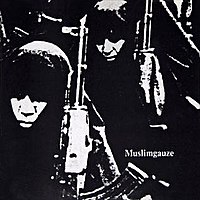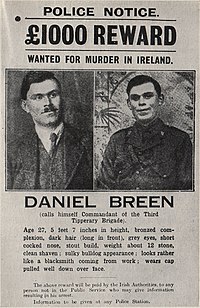 |
| (Photo credit: Wikipedia) |
Gouraud’s
bars, as ever, welcomed those who wanted to party and forget the woes of a
world where violence and conflict were a distant memory but a constant worry.
Orphaned by Belfast’s troubles, Lynch appreciated Beirut’s fragile peace and
sectarian divides, the hot embers under the white ash on the surface of a fire
that looked, to the casual observer, as if it had gone out. Lynch scowled as he
passed a poster carrying Michel Freij’s smiling face, encircled in strong black
script: ‘One Leader. One Lebanon.’
Gerald Lynch features in my first three books, a violent and drunken Northern Irish spy. Well, a well-mannered and teetotal one would be a bit less fun. His appreciation of Lebanon's sectarianism is visceral because it mirrors his own experiences growing up during 'the troubles' in Northern Ireland.
It's not until you drive through a wee township bedecked in fluttering Union Jack pennants, bunting and flags, with kerb stones painted red white and blue and murals on the walls that you begin to appreciate the strength and depth of feeling still in the North. Even the nomenclature is loaded: Northern Ireland or the North - or N. Ireland? I say Derry, you say Londonderry. And the next township down the road will be themed green white and gold, although you won't typically find as much bunting and never painted kerb stones in the Catholic areas. They're just more, well, Irish.
I recall my amazement standing by the 'peace wall' in Belfast (pictured above). Dividing Protestant and Catholic neighbourhoods, these walls or 'lines' are found in several places in the north and are mostly higher than the Israeli separation wall. That's pretty mad, no? They're being torn down, but in the meantime have become something of a tourist attraction. Which is at the same time sort of nice and a tad perverse.
The conflation of politics and religion is absolute. Republican Nationalist Catholic, Unionist Loyalist Protestant. The conflict between these two communities goes back centuries, old wounds have never quite healed and unfairnesses never quite been forgiven, let alone forgotten. But in the past twenty years, as in Lebanon, the peace has held. The marching season is an annual incitement, a national holding of breath as everyone in their right minds hopes that it'll pass without incident or a descent into chaos. But with a little give and take, perseverance and a shared will to avoid falling back into the violence and repression, the communities of Northern Ireland have managed to preserve their mutual accommodation. It hasn't all been plain sailing, by any means.
A great deal of the credit for even getting us here belongs to a dead woman. Mo Mowlam was Secretary of State for Northern Ireland in 1998 and was instrumental in pulling together the Good Friday Peace Agreement of that year. Remarkably, she achieved her feats of diplomacy knowing she had brain cancer, a fact she kept secret until forced to respond to the charming British red top newspapers, who were hurling jibes about her dumpy appearance. Her memoir, Momentum, is an exhilarating read, packed with the personality of a straight-talking, no-nonsense woman of remarkable character. Sadly, insanely, the book is out of print. Reading it was one of my more enjoyable research tasks working on A Decent Bomber.
All of this, inevitably, forms the backdrop to the book. Pat used to make bombs for the IRA and doesn't want to do it again. His old mate Brian MacNamara is in politics these days and doesn't need bombs going off, particularly as MacNamara's boss, Sean Driscoll, is standing for election. Former 'freedom fighters', they'd rather not get involved in Pat's upset apple cart and the looting of arms caches* they'd pretended weren't there any more. And then there's Boyle, the boy who watched his da shot by the IRA, who turns into an angry copper...
MacNamara
pressed his hands together between his legs. ‘There were plenty big daft lads.
On both sides. We depended on them.’
‘Well
this one shot my Da. Dropped him there in the garden. Bang. Not even bang bang.
Just bang.’
‘I’m
sorry.’ MacNamara struggled to still his twisting hands, to lay them on his
knees. He caught Boyle’s sideways glower.
Boyle
focused back on the road. ‘Sure you are.’
Pat's loss from 'the troubles' still hurts him today. So does Boyle's. They find themselves pitched together, working to face a new threat from outside that, ultimately, unites them. I had never intended the book to be a moral tale about reconciliation, but it's in there somewhere. Inevitably, someone, somewhere will take exception to something I've written in the book, because passions still ignite and feelings still run deep. Twenty years, as anyone in Lebanon will tell you, can pass in the seeming blink of an eye.
But the vast majority of people in both communities never wants to go back. That alone is reason for enormous optimism. And if you do find something you don't like in the book, get in touch. I'll be happy to talk about it. Because, let's face it, when we stop talking is when we're in trouble...
* Demonstrating, once again, that truth is stranger than fiction, two separate arms cache finds were made in Ireland and England earlier this year. Given I'd worried about the unlikely nature of this aspect of my fiction, I was oddly a little relieved when they turned up!











